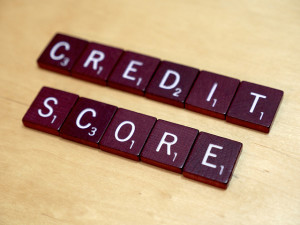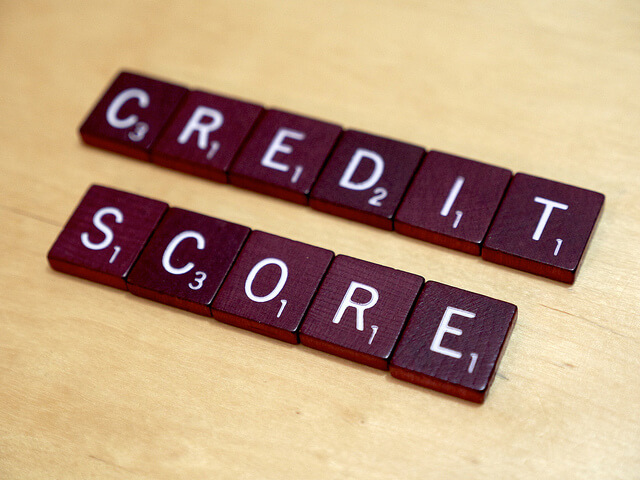What is a Credit Score? (And Why You Should Care)

No matter which group you belong to, you still need to know what a credit score is and where you personally stand with your credit score.
At the most basic level a credit score is: a decision-making aid for lenders to use when trying to determine your credit worthiness. In plain terms, you credit score helps banks and lenders decide if you are worth taking a risk on and how likely you are to pay back your loan in full and on time.
How this score is determined is based on your previous history with credit cards, student loans, mortgage payments, and every other kind of credit under the sun. According to myfico.com, your credit score is made up of several weighted factors, including:
- 35% Payment History
- 30% Amounts Owed
- 15% Length of History
- 10% New Credit
- 10% Types of Credit Used
Payment History
Your payment history is the most highly weighted factor in determining your credit score. Here, lenders are checking to make sure that you always make your payments on time and that you are paying more than just the minimum payment each month. Having one late payment isn’t necessarily a deal breaker, but it’s best to avoid these if at all possible.
Amounts Owed
Owing money to a couple of different creditors isn’t a negative for your credit score. In fact, lenders like to see that you are “using credit responsibly”, which usually means using around 15-25% of your available credit. When your credit usage percent reaches over 50%, that is usually a red-flag to potential new lenders. You should also be aware that some lenders actually shy away from borrowers that have too much available credit on their report too. For instance, mortgage lenders might be afraid to lend you a 30 year mortgage if you have a huge amount of available credit because it’s possible that you’ll get yourself into financial trouble after the mortgage deal has been closed.
Length of History
A few factors are at play in determining how creditors use this part of your credit history to determine your credit score. The age of your oldest account, the age of your newest account, the average age of all your credit accounts, and how long it’s been since you used credit on your accounts can all be taken into account in determining your overall credit score. One common tip for helping your credit score is to never close your first credit card as this can impact the length of your credit history negatively.
New Credit
Beware of opening too many new credit accounts in short period of time if you want to score well in this section of determining your overall credit score. Opening too many accounts can be a big red flag to lenders, especially if you have a fairly short credit history overall.
Types of Credit Used
Your credit score also looks at what types of credit you are utilizing. Having a mix of credit cards, installment loans (student loans), retail charge accounts, and mortgage loans is the best way to score highly in this area. But, don’t take on more credit accounts than you need to try to score higher in this section. It only makes up 10% of your overall credit score.
Why Your Credit Score Matters
Thought some might disagree, your credit score can have a huge impact on your life. No matter how debt adverse you are, there will likely be a time in your life when you need to borrow money for one purchase or another.
The higher your credit score, the more likely you are to qualify for the best interest rates whenever you get ready to borrow money for a large purchase. Even if you only borrow money to buy an expensive new (or new-to-you) car, or to purchase your first home, you will need a good credit score. Having a good credit score can mean saving a few thousand dollars over the course of a long-term mortgage loan.
If you never have to borrow money for any purchase in your lifetime, your credit score still matters. By avoiding buying a house you aren’t necessarily avoiding the need for a good credit score. If you rent from a property management company, chances are they check you credit score or at least your credit history. After all, no landlord wants to rent property to someone who doesn’t pay their bills on time. If you don’t have a credit score or credit history for your landlord to use, you might have to have a co-signer for your lease or rental agreement. These days, even some individuals who rent out property check the credit scores of potential new renters.
Credit scores are also used by some insurance companies to determine your auto and renter’s insurance rates, and even utility companies, cell phone providers, etc. consider your credit score before deciding if you are eligible to open an account with them. If your credit score isn’t very good, you might have to pay a large deposit to open a new account.
Clearly your credit score is important in determining a lot of things in life, not just if you qualify for a new credit card.
Do you check your credit score regularly? What steps have you taken to improve your credit score?
Photo courtesy of: Simon Cunningham



Honestly, we didn’t use a credit card before BUT until we know the advantages and disadvantages of using a credit card my hubs decided to apply for it. I’m pretty sure that we are responsible enough to have our own cc.
I’m glad you didn’t use a CC when you didn’t fully understand the pros and cons. In my opinion, credit cards are fine to use as long as you use them properly.
We use our credit card for everything. I like to say I’m not concerned about my credit score. We’ve always got good rates for our mortgage and that’s the only debt we carry and we’re planning to pay it off in the next few years. But, I’m worried about damaging our credit score by churning cards, so maybe I’m not that indifferent afterall.
I don’t churn cards, but I know some PF bloggers who do say that it actually hasn’t had much of an effect on their score at all, or if it has it hasn’t been negative (suprisingly).
Yes, we check our credit scores regularly. I love seeing it increase – it’s almost like a game for us haha!
I check my score and my history regularly too Michelle. This helps me to watch for identity theft too.
I agree that credit scores are important, and I was no aware of that when I started using credit cards in college. It wasn’t until I left college with a low budget busted score that I learned about how important good credit was. I don’t hate credit cards, and only have one, and your right the key is to be responsible with the credit entrusted to you.
I knew about credit scores, but proceeded to destroy mine anyhow. Now I’ve learned my lesson and am working to build it back up.
I’m working on saving for a down payment for my first home now. I always thought I was great with my credit cards (I always pay my balance in full, never missed a payment, and I’ve never had any debt) but I’d never been told that part of your score was how much of your credit you were using.
Now I’m shaping up to make sure I’m only using 15-20% of my available credit.
There’s so much great info in this post I’ll definitely be bookmarking it for the future! Thanks!
I’m glad you found it useful!
Last year, whilst trying to buy a house (I’ve now bought it, despite all the drama involved!) I realised just how important a credit score is.
I didn’t have a bad score, but it wasn’t great. My mortgage broker applied for mortgages that were designed for much better credit scores, I was declined, and my score went downhill rapidly. I had to rebuild my credit score quickly.
It turns out that it’s really important to have all of your accounts registered to your one voting address (in the UK, anyway)- and once I sorted that out, my score improved by 10% in a few days. That made all the difference, and I got accepted for a mortgage. Since then I’ve kept a much closer eye on my personal finances, and my credit score. You live and learn!
Yes, I didn’t fully realize how important my credit score was either until I was applying for my mortgage back in 2012. Turns out it matters a lot more than you might think.